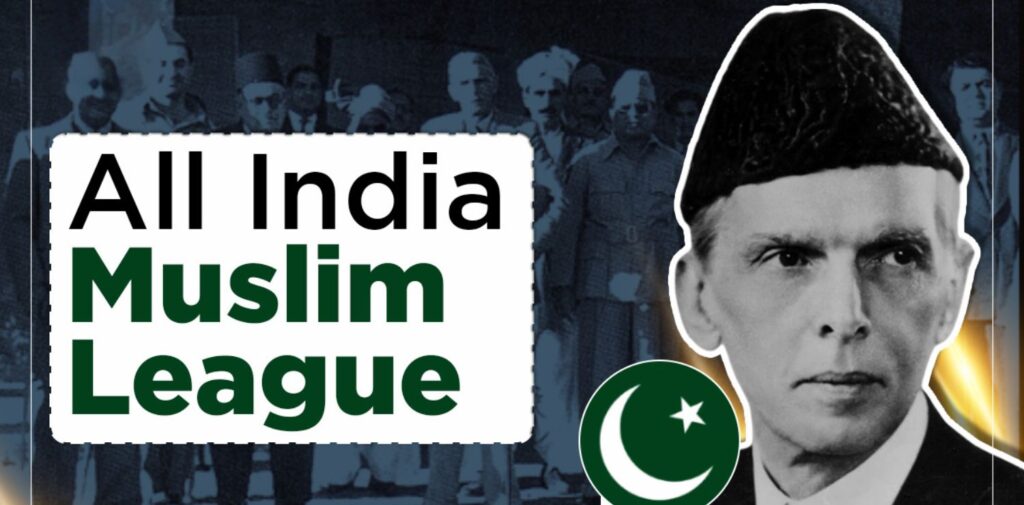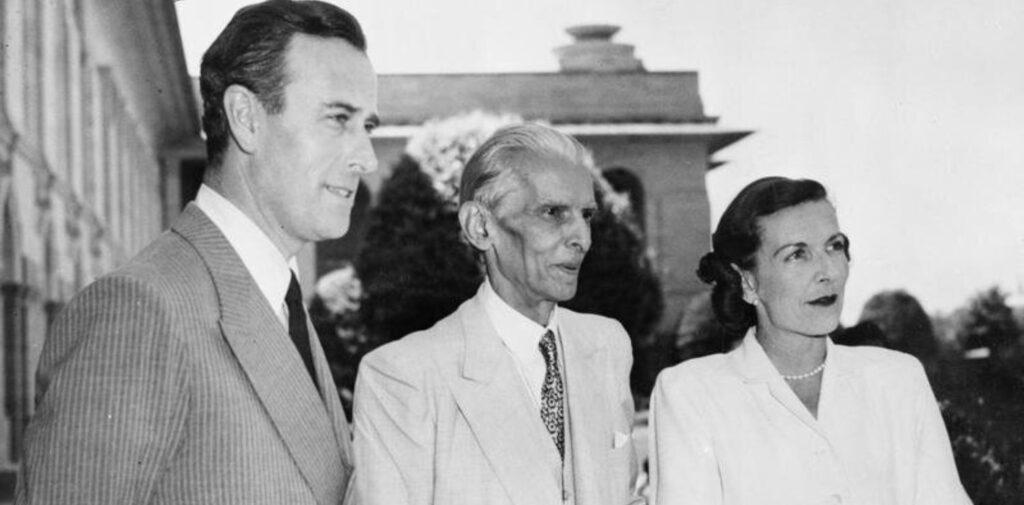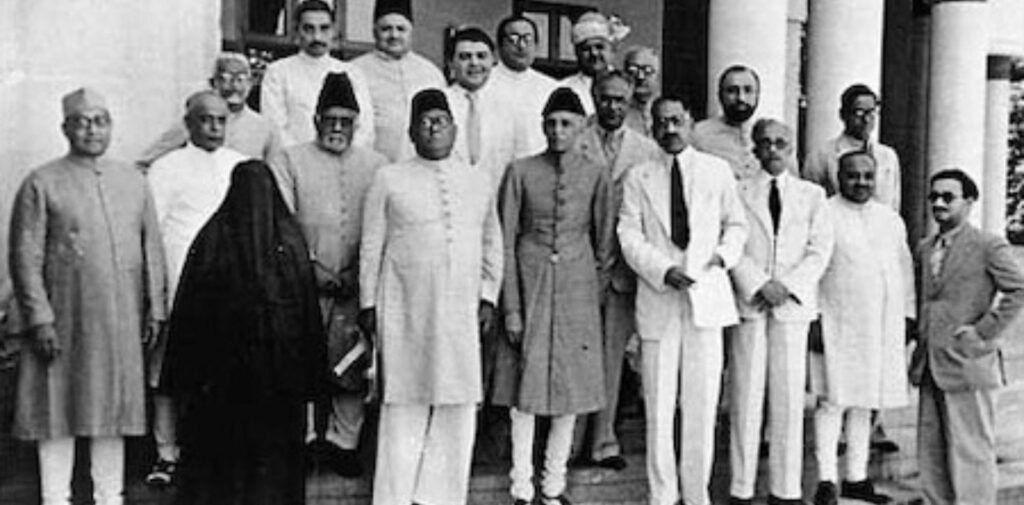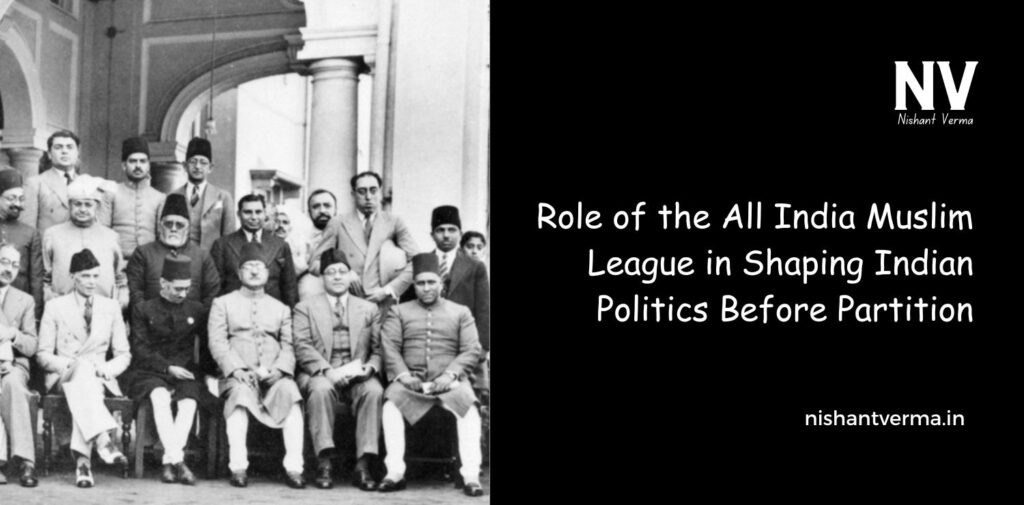The All India Muslim League (AIML) played a very important role in shaping the politics of India before the country was divided into two parts in 1947. This division led to the creation of India and Pakistan. To understand the role of the Muslim League in this event, we need to go back in time and look at the political situation of India before the Partition.
In this article, we will explore how the All India Muslim League grew, what it wanted, and how it influenced Indian politics in the period before the Partition of India.
What Was the All India Muslim League?
The All India Muslim League was a political party formed in 1906. It was created to represent the interests of Muslims in India. While India was under British rule, many Muslims felt that their voices and concerns were not being heard. The Muslim League was formed to ensure that Muslims had a platform to speak up and protect their rights.
The party’s main goal was to protect the rights of Muslims, but over time, it became more focused on creating a separate nation for Muslims, which eventually led to the creation of Pakistan.

Early Years of the Muslim League
In the beginning, the Muslim League did not have a strong vision of creating a separate country. The League started by working alongside other political parties like the Indian National Congress (INC) to fight for the rights of all Indians, regardless of their religion. The goal was to work together for India’s freedom from British rule.
However, over time, the situation changed. Muslims felt that their interests were not being fully represented in the larger Indian nationalist movement, which was mainly led by Hindus.
Why Did the Muslim League Want a Separate Nation?
As the All India Muslim League grew, some leaders started to believe that Muslims and Hindus had different cultures, traditions, and needs. They thought that the Hindu-majority Indian National Congress (INC) could not fully represent Muslims, who made up a large population in India.
The Muslim League started to feel that Muslims would not be able to live peacefully in a country where the majority of the population was Hindu. They wanted to create a separate nation where Muslims could freely practice their religion and follow their culture without fear.
This idea grew stronger over time, especially after the 1930s, when leaders like Muhammad Ali Jinnah, who would later become the founder of Pakistan, became more involved in the Muslim League.
The Demand for Pakistan
In 1940, the All India Muslim League made an important decision that would change the course of Indian history. At the Lahore Resolution (also known as the Pakistan Resolution), the Muslim League formally demanded a separate state for Muslims. They called it Pakistan, which would be made up of areas where Muslims were the majority.
This demand for Pakistan was a big shift for the League. Before this, the League had mainly focused on ensuring the political rights and safety of Muslims. But now, the idea of a separate nation became central to their goals.

The Role of Muhammad Ali Jinnah
One of the most important leaders in the history of the Muslim League was Muhammad Ali Jinnah. Jinnah was a lawyer who initially worked with the Indian National Congress. He believed in Hindu-Muslim unity and worked towards getting equal rights for all Indians, regardless of religion.
However, over time, Jinnah became disappointed with the way the Congress was treating Muslims. He felt that Muslims were being ignored and were not being given a fair chance to express their views. As a result, Jinnah joined the All India Muslim League and quickly became its most prominent leader.
Jinnah’s leadership played a key role in turning the Muslim League into a powerful political force. He became the strongest voice for Muslim rights and the driving force behind the demand for Pakistan.
Jinnah’s famous speech, where he called for “unity, faith, and discipline,” and his leadership during the Partition period, earned him the title of “Quaid-e-Azam,” which means “Great Leader.”
The Role of the Muslim League in Shaping Indian Politics
Before the Partition, the Muslim League had a significant impact on Indian politics. Here’s how it influenced events:
- Representing Muslim Interests: The Muslim League worked hard to make sure that the political needs and rights of Muslims were not overlooked. For example, the League pushed for separate electorates for Muslims, meaning that Muslims would vote for Muslim representatives, ensuring that their interests were protected. This was one of the main demands of the League and was eventually agreed to by the British during the time of the British Raj.
- Growing Differences with the Indian National Congress: In the early 20th century, the Indian National Congress (INC) and the Muslim League worked together to fight for Indian independence. However, over time, the differences between the two grew. The INC was mostly dominated by Hindus, and many Muslim leaders felt that their needs were not being addressed. As a result, the Muslim League started to become more independent in its political approach. By the 1930s, the Muslim League began demanding more political power for Muslims and started pushing for a separate nation, which created a rift between the INC and the Muslim League.
- The Lahore Resolution (1940): The Lahore Resolution, passed in 1940, was a major turning point. This resolution called for separate states for Muslims in the north-western and eastern zones of India. This was the first official demand for the creation of Pakistan. The resolution led to increased tension between the INC and the Muslim League and set the stage for the Partition of India in 1947.
- Mobilizing Muslims for the Cause of Pakistan: The Muslim League worked hard to gain the support of Muslims across India for the creation of Pakistan. They used propaganda, rallies, and speeches to convince Muslims that their future could only be secured in a separate nation. Jinnah and other leaders of the Muslim League traveled across India to gather support. Over time, more and more Muslims began to support the idea of Pakistan. This led to growing political power for the Muslim League, and it eventually won a significant number of seats in the elections of 1946.
- The 1946 Elections: In 1946, India held elections for the central legislative assembly. The Muslim League contested these elections, and they won a large number of seats in areas with a Muslim majority. This victory showed that there was strong support for the idea of Pakistan among Muslims. The success of the Muslim League in the elections made it clear that the demand for Pakistan was not just an idea but a movement with widespread support among Muslims.

The Impact of the Muslim League on the Partition of India
The growing influence of the Muslim League and the demand for Pakistan led to the Partition of India in 1947. After years of negotiations and political struggles, the British finally agreed to divide India into two independent countries: India and Pakistan. This division was based on religious lines, with India becoming a secular country for all religions and Pakistan becoming a separate state for Muslims.
The Partition caused widespread violence and the displacement of millions of people as Hindus and Muslims were forced to move to their respective countries. Many families were separated, and thousands of lives were lost in the chaos that followed.
Conclusion: A Legacy of Change
The All India Muslim League played a crucial role in shaping the politics of India before Partition. Its demand for a separate nation for Muslims led to the creation of Pakistan in 1947. The League’s actions, under the leadership of Muhammad Ali Jinnah, changed the course of Indian history and led to the division of the country.
The Muslim League’s role in the demand for Pakistan was a turning point in India’s struggle for independence. It helped shape the political landscape of India and Pakistan, and its legacy still influences the relationship between the two countries today.
So, when we think about the Partition and the creation of Pakistan, we cannot forget the important role that the All India Muslim League played in shaping the course of history.




